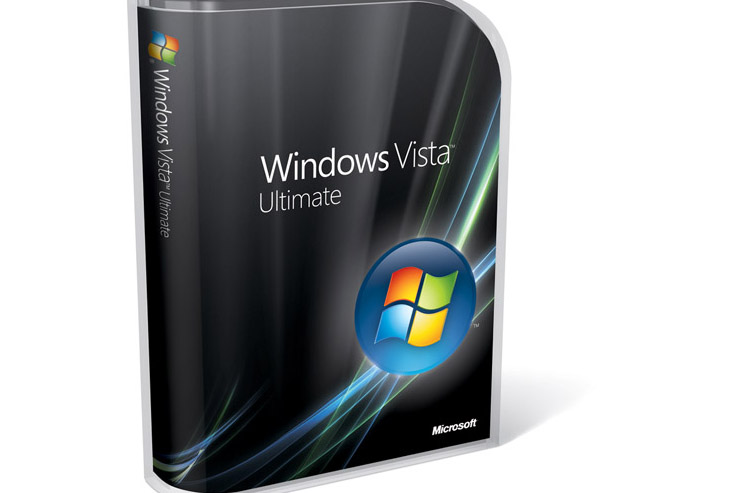The quiet demise of Windows Vista
Microsoft seems to be letting its much-maligned Vista operating system die a quiet death.

The avalanche of positive publicity that Microsoft has been enjoying in relation to its incoming Windows 7 operating system is better, you'd suspect, than the firm could ever have realistically hoped for.
That's even on the bluest of its blue sky days. From the release of the first beta, through to the final build that's going to be rolling out onto the market in the coming weeks, it's given the company some of its most upbeat coverage in years, and Windows 7 pre-orders are said to be significant.
Yet looking at more detail at said coverage reveals an interesting, but hardly unsurprising, undercurrent. The talk is about whether this will be the moment where Windows XP will finally be usurped as many people's operating system of choice, a reflection of the fact that many businesses have seen little to convince them that investing in Vista would aid them in any meaningful way.
Vista, after all, was the operating system that was designed to wean people away from Windows XP, and it just hasn't happened. A lack of major reasons to upgrade, through to problems with the product itself and, ultimately, no major need for it, has meant that XP has remained the dominant operating system in the market, and even now, Net Applications tracks it at 72.9 per cent share against Vista's 17.9 per cent.
You wouldn't quite call it a disaster, but you can bet that the projections on the original PowerPoint presentation looked nothing like that.
Wrong product, wrong time?
Microsoft, despite positive comments to the contrary, was likely to have worked out it had problems long before the assorted commentators, analysts and pundits had their say. But the problem was that Windows is the kind of juggernaut that doesn't turn easily. And it really needed to be able to.
Get the ITPro daily newsletter
Sign up today and you will receive a free copy of our Future Focus 2025 report - the leading guidance on AI, cybersecurity and other IT challenges as per 700+ senior executives
For Microsoft, ultimately, found itself saddled with the bloated Vista at the worst possible time. In the midst of the product's life cycle, the netbook boom happened, and all of a sudden, smaller, tighter and lighter software applications became what the market was demanding. And in spite of trying to end its life for some time, Microsoft found itself in the awkward position of heading back a generation to plug the gap. As such, far from killing Windows XP, Microsoft ended up promoting it all over again, this time as a netbook operating system, while Vista considered to meander in the market.
Crucially, it also began to show signs of losing the confidence of the industry. Intel even went on the record last year to say that there was "no compelling reason" to upgrade to Vista.
The year before that? Acer went on the offensive, with the lambasted Home Basic edition of the operating system in its sights.
These weren't the words of bloggers venting their spleen. These were the words of crucial partners to Microsoft, and in Acer's case, crucial partners who began to looking with some futility at the moment for an alternative.
-
 Should AI PCs be part of your next hardware refresh?
Should AI PCs be part of your next hardware refresh?AI PCs are fast becoming a business staple and a surefire way to future-proof your business
By Bobby Hellard
-
 Westcon-Comstor and Vectra AI launch brace of new channel initiatives
Westcon-Comstor and Vectra AI launch brace of new channel initiativesNews Westcon-Comstor and Vectra AI have announced the launch of two new channel growth initiatives focused on the managed security service provider (MSSP) space and AWS Marketplace.
By Daniel Todd
-
 Tiny11 review: Windows 11 with only 2GB of RAM
Tiny11 review: Windows 11 with only 2GB of RAMReview A version of Windows 11 for older machines that don't meet the full requirements
By Nik Rawlinson
-
 Red Hat Enterprise Linux becomes foundational operating system for Cohesity Data Cloud
Red Hat Enterprise Linux becomes foundational operating system for Cohesity Data CloudNews New strategic partnership between Red Hat and Cohesity aims to drive innovation in the data security and management space
By Daniel Todd
-
 Ubuntu shifts to four-week update cycle
Ubuntu shifts to four-week update cycleNews Critical fixes will also come every two weeks, mitigating the issues involved with releasing prompt patches on the old three-week cadence
By Richard Speed
-
 AlmaLinux follows Oracle in ditching RHEL compatibility
AlmaLinux follows Oracle in ditching RHEL compatibilityNews Application binary compatibility is now the aim with 1:1 now dropped
By Richard Speed
-
 How big is the Windows 10 cliff-edge?
How big is the Windows 10 cliff-edge?ITPro Network With some comparing the upcoming Windows 10 end of life to Windows XP, we ask members of the ITPro Network for their insight
By Jane McCallion
-
 Everything you need to know about the latest Windows 11 updates - from bug fixes to brand-new features
Everything you need to know about the latest Windows 11 updates - from bug fixes to brand-new featuresNews Two new cumulative updates are on the way and will be installed automatically on Windows 10 and Windows 11 machines
By Rory Bathgate
-
 How to download a Windows 11 ISO file and perform a clean install
How to download a Windows 11 ISO file and perform a clean installTutorial Use a Windows 11 ISO to install the operating system afresh
By John Loeppky
-
 We could all benefit from better Windows and macOS accessibility features
We could all benefit from better Windows and macOS accessibility featuresOpinion Today’s accessibility features can help you work through a nasty injury, but there’s still plenty of room for improvement
By Barry Collins